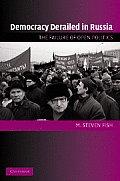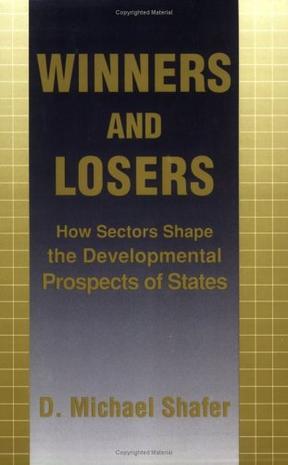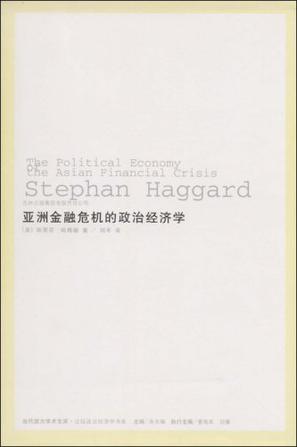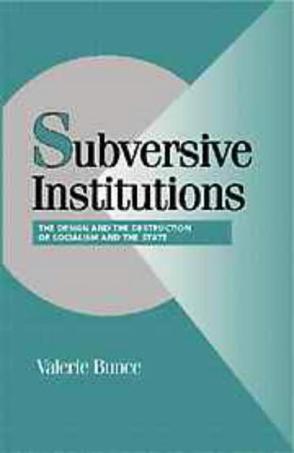-

Democracy Derailed in Russia
"M. Steven Fish's book, Democracy Derailed in Russia, offers a lively, original account of the failure of democratization in post-Soviet Russia. Fish uses a wide-angled comparative lens to identify the factors explaining the emergence of oligarchic capitalism and an increasingly closed polity in Russia. The findings are provocative and will stimulate considerable debate." Thomas Remington, Emory University "By carefully comparing Russia's experience with that of other new democracies, M. Steven Fish has zeroed in on the factors that have impeded Russia's democratic development. Especially original and stimulating is the discussion of oil in Russia and the comparisons drawn with other petro-states throughout the world. Even scholars who disagree with Fish's analysis will want to engage it." Jeffrey Kopstein, University of Toronto "Building on a decade and a half of intensive research on post-communist democratic transition and Russian politics, M. Steven Fish presents a thought-provoking analysis of the trajectory of regime change in post-Soviet Russia. Fish argues that the time has come to declare Russia's post-communist democratic experiment a failure: Russia under Putin is now an authoritarian regime. But he insists that many widespread explanations for democratic failure in Russia are simply wrong.(continued underneath) Russia did not fail because of its Orthodox religious culture, its multi-ethnicity, its Leninist legacies, or its decision to implement radical economic reform. Rather, in comparative perspective, Russia's authoritarianism today can be traced largely to three factors: its dependence on raw material exports, the stateas continuing control over most economic resources, and superpresidentialism. Fish's book will become a standard reference in the fields of Russian and post-Communist politics, and a must read for those interested in comparative democratization in general." Stephen Hanson, University of Washington "Why has the global wave of democratization produced so many semi democracies" that are perched precariously between authoritarian and fully democratic politics? By drawing on the details of Russian political and economic evolution and by placing the Russian experience in comparative perspective, M. Steven Fish provides a compelling answer that spans the two dominant approaches in comparative politics to explaining regime trajectories--the political economy of reform and the design of political institutions. For Fish, Russian democracy has been compromised by too much oil, too little economic reform, and too weak a legislature. It is an answer that promises to travel well." Valerie Bunce, Cornell University "This is an important work, and should be read both by Russia specialists and those interested in comparative democratization. It is very well written and its presentation is easy to follow, making it amenable for undergraduate course use as well. With this book, Fish has raised the bar for future work on Russian politics." - Perspectives on Politics, Paul Kubicek, Oakland University "Fish's Democracy Derailed is still one of the most creative and analytically insightful books published to date on Russia's post-communist political development. There is no doubt that Fish's conclusions will play a prominent role in debates about democratization and post-communist politics for years to come." - Leah Gilbert, Ph.D. student in Government at Georgetown University "...this is a good piece of empirical work on contemporary Russia politics. Provocative in style, the book can be recommended for discussion by upper-level undergraduates and postgraduates studying Russian politics, comparative democratization, and the politics of transformation in the former communist world. Many themes in the book provide a good springboard for class discussions. There is an excellent bibliography and the author points readers in the direction of opposing views." -

Winners and Losers
-

亚洲金融危机的政治经济学
《亚洲金融危机的政治经济学》讲述了:比较政治经济学不为人所知完全不是因为它是一个崭新的领域或边缘领域。比较政治经济学通过比较不同国家或同一国家不同时期的政府、利益集团和市场的关系来探讨国家怎样管理经济事务。其实这个领域所研究的问题关系到我们每人每天的生活,也几乎是大众话题。跨时空比较政治因素和经济因素的关系应该说早就有了,但真正成为系统的研究领域还是20世纪后半期的事。肖恩菲尔德(Shordield)于1965年出版《现代资本主义》(Modern Capitalism)一书,将发达国家不同的经济政策与它们各自的历史和文化相连接,开创了当代比较发达国家经济政策的先河。 -

Subversive Institutions
Review "...this book answers the question of our age and provides an eminently worthy target to shoot at." Robert Legvold, Foreign Affairs "Bunce's story is a complicated one, but that, in fact, is part of the message of her book: that parsimony in explaining macrolevel historical change may come at the cost of cutting out precisely those variables that need attention...The real value of her account is its concretizin exactly what the much-discussed "communist legacies" really are." World Politics 53 "The arguments presented in the book bear upon a larger circle of issues in the study of comparative transitions from socialism." Slavic and East European Journal Review "...this book answers the question of our age and provides an eminently worthy target to shoot at." Robert Legvold, Foreign Affairs "Bunce's story is a complicated one, but that, in fact, is part of the message of her book: that parsimony in explaining macrolevel historical change may come at the cost of cutting out precisely those variables that need attention...The real value of her account is its concretizin exactly what the much-discussed "communist legacies" really are." World Politics 53 "The arguments presented in the book bear upon a larger circle of issues in the study of comparative transitions from socialism." Slavic and East European Journal --This text refers to the Hardcover edition. -

威权政治
在政權分類中,當前世上絕大多數的國家,都是屬於威權體制。導致這種政體出現的原因很多,包括政治、社會和經濟的誘因;而其形態也不同,有官僚威權政體、動員式政體和後極權式的威權政體等。這類政權的政治制度化的層次極低,國家目標混沌,領導者行一人或一黨專政,公民參政機會不多。在有限多元的限制下,反對黨僅具象徵性的「準反對」功能。但威權政黨的組織極為渙散,經常變形,勢力逐年下降。本書即針對威權政體的種種特質,作系統化的研究與闡述,極富學術價值。 -

The Arab Uprisings
Beginning in December 2010 popular revolt swept through the Middle East, shocking the world and ushering in a period of unprecedented unrest. Protestors took to the streets to demand greater freedom, democracy, human rights, social justice, and regime change. What caused these uprisings? What is their significance? And what are their likely consequences? In an engaging question-and-answer format, The Arab Uprisings explores all aspects of the revolutionary protests that have rocked the Middle East. Historian James Gelvin begins with an overview--What sparked the Arab uprisings? Where did the demands for democracy and human rights come from? How appropriate is the phrase "Arab Spring"?--before turning to specific countries around the region. He looks at such topics as the role of youth, labor, and religious groups in Tunisia and Egypt and discusses why the military turned against rulers in both countries. Exploring the uprisings in Libya and Yemen, Gelvin explains why these two states are considered "weak," why that status is important for understanding the upheavals there, and why outside powers intervened in Libya but not in Yemen. Next, Gelvin compares two cases that defied expectations: Algeria, which experts assumed would experience a major upheaval after Egypt's, and Syria, which experts failed to foresee. He then looks at the monarchies of Morocco, Jordan, and the Gulf, exploring the commonalities and differences of protest movements in each. The final chapter discusses the implications of the uprisings. What do they mean for the United States? For Iran? Has al-Qaeda been strengthened or weakened? What effects have the uprisings had on the Israel-Palestine conflict? What conclusions might we draw from the uprisings so far? For anyone wishing to understand the dramatic events in the Middle East, The Arab Uprisings is the place to turn.